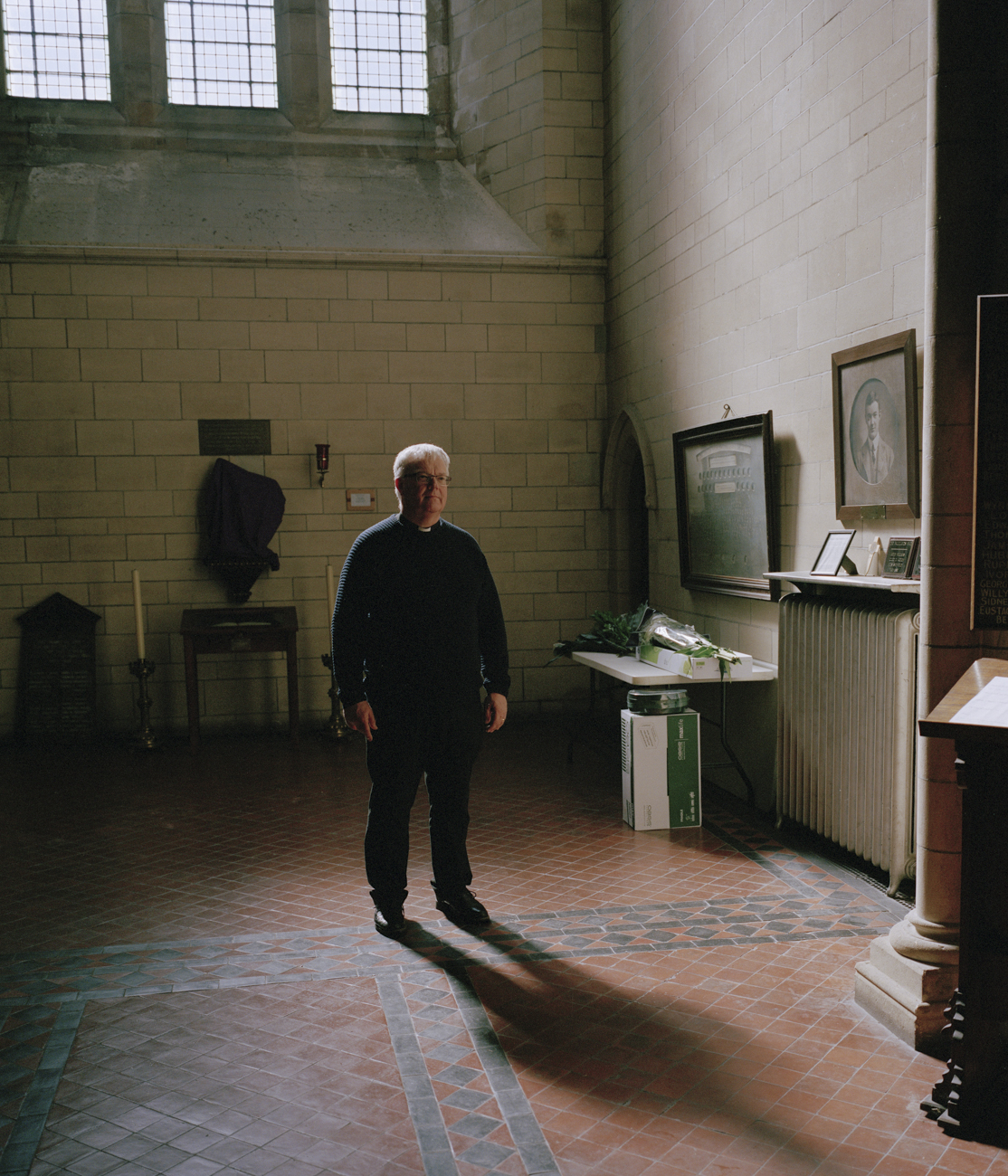Port Talbot: the industrial town with an uncertain future
- Text by Niall Flynn
- Photography by Alecio Ferrari and Alex Fleming

Port Talbot is synonymous with steel. At the height of employment in the ’60s, the town’s steelworks was the biggest in Europe, and the largest single employer in Wales with a workforce of almost 20,000.
Though today the plant employs a number closer to 4,000, steel remains Port Talbot’s heart and soul. But in recent years, its future has looked precarious: job losses, industry fears and the prospect of a catastrophic Hard Brexit have created a feeling of uncertainty that hangs over the Welsh town.
At the beginning of 2018, photographers Alecio Ferrari and Alex Fleming arrived with the intention of embarking on a project centred on the connection “between people and place”. However, it quickly became clear that Port Talbot’s nature as an industrial town – a steel one, to be specific – would form an integral part of the work.

 “Our research of Port Talbot came at a time where articles declared Port Talbot as the most polluted city in the UK,” say Ferrari and Fleming, speaking collectively regarding their initial attraction to photographing the town.
“Our research of Port Talbot came at a time where articles declared Port Talbot as the most polluted city in the UK,” say Ferrari and Fleming, speaking collectively regarding their initial attraction to photographing the town.
“While the nefariousness of industrial towns on both environmental and human health are well documented, what resonated for us was the isolation that was put upon the people living within industrial towns. What becomes of the individuals who rely solely upon the steel works?”
 Simply titled Port Talbot, the duo’s images hone in on the notion of isolation, presenting Port Talbot as a place – like countless industrial towns across the UK – that has been allowed to fall behind in the midst of industry shifts and economic downturn.
Simply titled Port Talbot, the duo’s images hone in on the notion of isolation, presenting Port Talbot as a place – like countless industrial towns across the UK – that has been allowed to fall behind in the midst of industry shifts and economic downturn.
“We would like to ignite the conversation of neglect that riddles our industrial communities, thus serving as a reminder that we all have a shared obligation to navigate the clouded waters of our future as one.”









Enjoyed this article? Like Huck on Facebook or follow us on Twitter.
Latest on Huck

In the ’60s and ’70s, Greenwich Village was the musical heart of New York
Talkin’ Greenwich Village — Author David Browne’s new book takes readers into the neighbourhood’s creative heyday, where a generation of artists and poets including Bob Dylan, Billie Holliday and Dave Van Ronk cut their teeth.
Written by: Cyna Mirzai

How Labour Activism changed the landscape of post-war USA
American Job — A new exhibition revisits over 70 years of working class solidarity and struggle, its radical legacy, and the central role of photography throughout.
Written by: Miss Rosen

Analogue Appreciation: Emma-Jean Thackray
Weirdo — In an ever more digital, online world, we ask our favourite artists about their most cherished pieces of physical culture. Today, multi-instrumentalist and Brownswood affiliate Emma-Jean Thackray.
Written by: Emma-Jean Thackray

Meet the shop cats of Hong Kong’s Sheung Wan district
Feline good — Traditionally adopted to keep away rats from expensive produce, the feline guardians have become part of the central neighbourhood’s fabric. Erica’s online series captures the local celebrities.
Written by: Isaac Muk

How trans rights activism and sex workers’ solidarity emerged in the ’70s and ’80s
Shoulder to Shoulder — In this extract from writer Jake Hall’s new book, which deep dives into the history of queer activism and coalition, they explore how anti-TERF and anti-SWERF campaigning developed from the same cloth.
Written by: Jake Hall

A behind the scenes look at the atomic wedgie community
Stretched out — Benjamin Fredrickson’s new project and photobook ‘Wedgies’ queers a time-old bullying act by exploring its erotic, extreme potential.
Written by: Isaac Muk